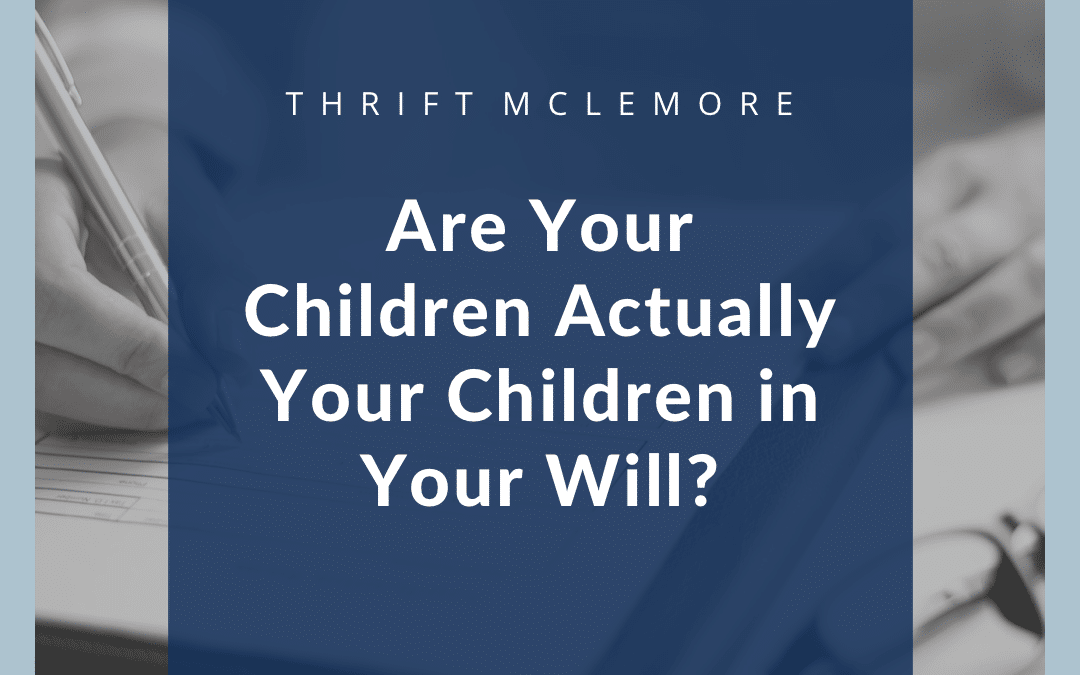Many Wills and Trusts leave assets to “my children.” But who does “my children” actually include under Georgia law?
Adopted children
When you adopt a child in Georgia, the law treats the child the same as your naturally born child. This means an adopted child would be included in the definition of “children” in a Georgia Will.
Failing to complete the adoption process may exclude the child from the definition of “children” in the estate plan.
However, Georgia law recognizes virtual adoption. Virtual adoption is an implied adoption without a court order. This doctrine is only applied after the death of the person who agreed to adopt the child. The following must be shown to establish virtual adoption:
- An agreement between the custodial parents/persons and the adopting parent stating the child shall be adopted; and
- A change in the child’s status such that there is a severance of the parent-child relationship and the adopting parent and child assume that relationship.
Foster children
Generally, a child has no right to inherit from their foster parent. This means a child who was never legally adopted by their foster parent would most likely be excluded from the definition of “children” in their foster parent’s estate plan.
Stepchildren
In Georgia, a stepchild who was never legally adopted has no legal right to inherit from a stepparent. This means that if your Will leaves your assets to “your children,” a court is unlikely to interpret a stepchild to be included in that definition.
Children born out of wedlock
In Georgia, a child born out of wedlock may inherit from the mother. However, it is not as straightforward when it comes to inheriting from the father.
A child born out of wedlock will likely not be included in the definition of “my children” in the father’s estate plan unless one of the following conditions has been met:
- A court order declares the legitimacy of the child or establishes paternity;
- The father attests to the parent-child relationship or signed the birth certificate; or
- Clear and convincing evidence exists of the man being the child’s father.
Children born after the death of the parent
In Georgia, a child born after the parent’s death will be included in the definition of “children” so long as these requirements are met:
- Conception before death;
- Born within 10 months of the death; and
- Survives more than 120 hours after birth.
Artificial insemination’s advancements as a viable option to conception required an update to this general rule. In Georgia, a child born through artificial insemination is included in the definition of “children” if the child was born during wedlock or within the usual period of gestation after marriage, so long as both spouses have consented in writing to the use and administration of artificial insemination.
The importance of tailoring terms to your goals in your estate plan
Every word matters in your Will or Trust. Failing to use the correct terminology in your estate plan can lead to unintended beneficiaries, litigation, and conflict from which your family never fully recovers. Always work with an experienced Atlanta estate planning attorney when drafting your Will or Trust.
The estate planning attorneys at Thrift McLemore can draft an estate plan that is customized to your circumstances and objectives. To speak with an Atlanta Wills attorney at Thrift McLemore today, call us at (678) 784-4150.
You may also enjoy:
Considerations When Choosing an Executor of Your Georgia Will






